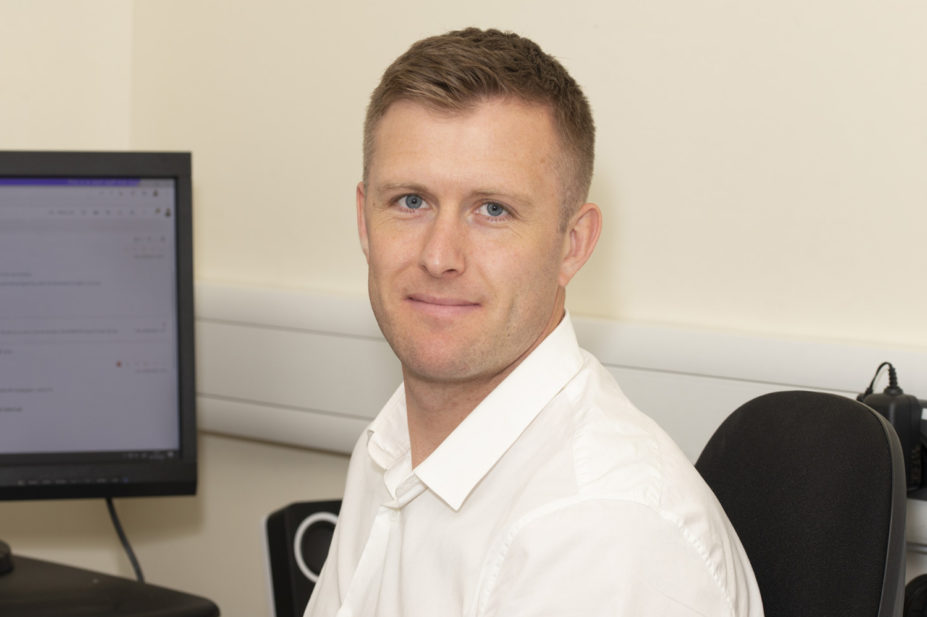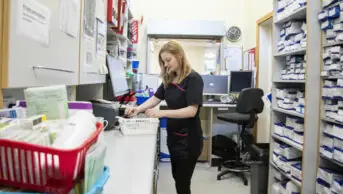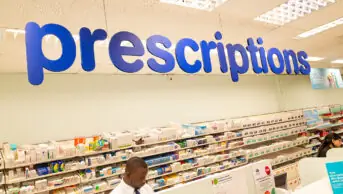
Owain Brooks
Owain Brooks’s work as an independent prescriber in a renal unit takes him over much of west and south Wales, helping to support kidney patients, including many on dialysis.
He is also one of a handful of pharmacists in the UK who can prescribe blood transfusion products. These are normally only prescribed by doctors but are vital to maintaining health for some kidney patients.
It is a unique position with seven pharmacists, and everyone prescribes
He joined the renal department — which he describes as “forward thinking” — in 2013. Like other pharmacists in the department, he was encouraged to become an independent prescriber to enable him to work to his full potential. “It is a unique position with seven pharmacists, and everyone prescribes. We also have nurse prescribers,” he says. “90% of all the medications prescribed by the kidney department are prescribed by pharmacists and nurses. It allows the consultants to concentrate on the more complex cases.”
Not surprisingly, the consultants in the department have been supportive of this shift towards non-medical prescribers. “It has just grown and multiplied … now the service could not run without our prescribing,” he says.
Patients, too, have been supportive of his role. They are likely to see a senior doctor on their first visit but from then on many will be reviewed by another member of the team — a nurse, a pharmacist or a junior doctor. As an example, Brooks says he spends some days at a dialysis unit in Carmarthen in south-west Wales, where he will see around 55 patients.
“We care for patients as far north as Aberystwyth, as far east as Pembroke and as far west as Bridgend,” he adds.
If I am doing a good job, we don’t see many problems
A lot of the job is ensuring the right medicines help patients remain stable with what is a long-term condition. “If I am doing a good job, we don’t see many problems,” he says.
More recently, he has taken on a greater managerial role as deputy regional lead renal pharmacist, which has led to a reduction in his clinical commitments, something that he misses.
When Brooks did his independent prescribing course in 2014, the course had both pharmacists and nurses on it and, inevitably, there was some duplication of pharmacological knowledge he already had. But he is swift to point out that there was still a lot he learnt from the course at Swansea University.
“I found it very useful because I could learn things like examination skills, which I was not particularly familiar with,” he says.
The course — which he now teaches on — has since changed so that students can pick modules that are most appropriate for their prior knowledge.
And those entering pharmacy undergraduate courses now will automatically cover independent prescribing in their curriculum. While this is a major step forward, he does have some qualms about whether they will all use it.
“There is a danger that people don’t use that prescribing qualification when they have it – especially if they are very junior,” he says. “I would advise any pharmacists to consider [independent prescribing] and encourage them to do it in whatever area they practice in.”
Quick fire questions
- How many prescriptions do you write? “About 15 to 20 a week – a lot less than I used to do, as a result of moving towards a more managerial role and seeing fewer patients.”
- Do you do more prescribing or deprescribing? “More prescribing than deprescribing.”
- Any regrets about qualifying as an independent prescriber? “No regrets.”
- Favourite part of the working day? “Maybe the first hour in which I have a little look and see what I need to do — I get my head straight.”
- How do you destress? “On paper, my job can be quite stressful. I have two young girls — aged three and coming up to a year — that’s plenty to keep my mind off things!”
- What makes your heart sink? “Nothing really makes my heart sink too much. I can get a bit frustrated by people who try to stifle innovation and progression but that does not happen too often.”
- What makes your heart sing? “Reaching targets and seeing others do the same. We have just got some funding to undertake some projects so that is great. But it is very much the patient care and the contact with them which makes my heart sing.”
Click here to return to ‘Meet the prescribers: pharmacists transforming care for patients’


